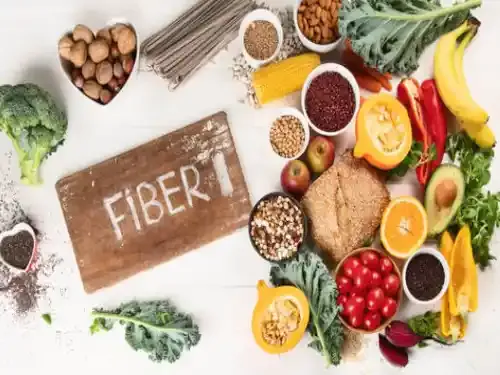## Introduction
In our quest for optimal health, it's essential to consider the impact of our dietary choices on our overall well-being. One common concern that many individuals face is bloating and intestinal gas. Bloating can be uncomfortable and even embarrassing, leading to decreased quality of life. While there are various factors that contribute to bloating, one significant aspect to explore is the role of dietary fiber.
Understanding Bloating and Intestinal Gas
Before delving into the relationship between dietary fiber and bloating, let's first understand what bloating and intestinal gas are. Bloating refers to the feeling of increased abdominal pressure, often accompanied by a distended or swollen abdomen. Intestinal gas, on the other hand, is the result of the natural digestive process, where gases like nitrogen, oxygen, carbon dioxide, hydrogen, and methane are produced.
Excessive bloating and gas can be caused by several factors, including swallowing air, certain medical conditions, and dietary choices. It is the latter that we will focus on in this article, specifically the influence of dietary fiber.
The Importance of Dietary Fiber
Dietary fiber is commonly known for its role in promoting healthy digestion. It is a type of carbohydrate found in plant-based foods that the body cannot fully digest or absorb. Instead, fiber passes through the digestive system largely intact, adding bulk to the stool and aiding in regular bowel movements.
Fiber can be classified into two main types: soluble and insoluble. Soluble fiber dissolves in water and forms a gel-like substance in the intestines, while insoluble fiber does not dissolve and adds bulk to the stool. Both types of fiber are beneficial for different aspects of digestive health.
The Role of Fiber in Reducing Bloating
Now that we have a basic understanding of dietary fiber, let's explore its impact on bloating. Contrary to what one might expect, fiber can actually help alleviate bloating in many individuals. Here's how:
1. Promoting Regular Bowel Movements
One of the primary reasons for bloating is constipation or irregular bowel movements. When waste material remains in the colon for an extended period, it can ferment and release gases, leading to bloating and discomfort. Fiber, especially insoluble fiber, adds bulk to the stool, promoting regular bowel movements and preventing constipation.
2. Increasing Stool Frequency
Fiber-rich foods, such as fruits, vegetables, and whole grains, are often high in water content. This increased water content in the stool can help soften it, making it easier to pass. By increasing stool frequency, fiber reduces the likelihood of excessive gas accumulation and bloating.
3. Enhancing Digestive Motility
The movement of food through the digestive system, known as digestive motility, plays a crucial role in preventing bloating. Soluble fiber, in particular, acts as a prebiotic, providing nourishment for beneficial gut bacteria. These bacteria produce short-chain fatty acids, which help regulate digestive motility, reducing the risk of bloating.
Finding the Right Balance
While fiber can be beneficial for reducing bloating, it's important to find the right balance for your individual needs. Some individuals may be more sensitive to certain types of fiber, experiencing increased bloating and discomfort. It's essential to listen to your body and make adjustments accordingly. Here are some tips to find the right balance:
1. Gradually Increase Fiber Intake
If you're not accustomed to a high-fiber diet, it's best to gradually increase your fiber intake. Sudden, drastic changes can overwhelm the digestive system, leading to bloating and gas. Start by incorporating small amounts of fiber-rich foods into your meals and gradually increase over time.
2. Monitor Your Tolerance
Everyone's digestive system is unique, so it's important to pay attention to your body's response to different types of fiber. Keep a food diary and note any specific foods that seem to trigger bloating or discomfort. This will help you identify your personal tolerance levels and make informed dietary choices.
3. Diversify Your Fiber Sources
To obtain the maximum benefits of fiber without excessive bloating, diversify your fiber sources. Instead of relying solely on one type of fiber, incorporate a variety of fruits, vegetables, whole grains, legumes, and nuts into your diet. This will provide a broader range of nutrients and fiber types, reducing the likelihood of bloating.
Conclusion
In conclusion, dietary fiber plays a crucial role in supporting healthy digestion and reducing bloating. By promoting regular bowel movements, increasing stool frequency, and enhancing digestive motility, fiber can alleviate discomfort and improve overall well-being. However, it's important to find the right balance and listen to your body's unique needs. Gradually increase fiber intake, monitor your tolerance, and diversify your fiber sources for optimal digestive health. With mindful dietary choices, you can say goodbye to bloating and embrace a healthier, more comfortable life.

